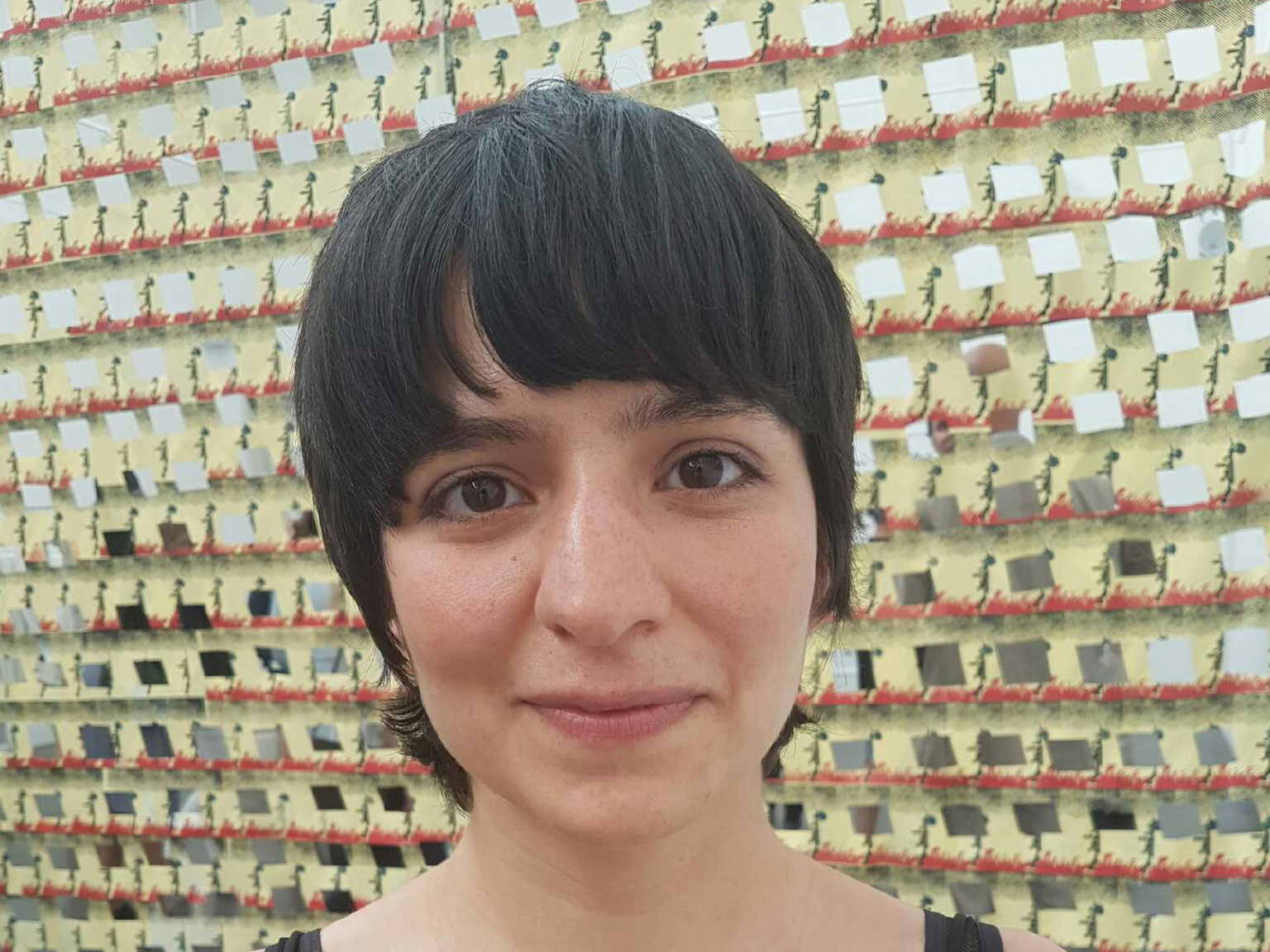
Studying at the Oslo National academy of the Arts: Academy of Fine Art
Name: Ronak Moshtaghi
Age: 29
Subject: Fine art, The Academy of Fine Art
Why did you choose KHiO?
I was studying painting at the University of Art in Teheran and I was looking at my options. Many schools have tuition fees for foreign students, Oslo National Academy of the Art was one of very few without a fee that you could study in English. I knew a French girl that had studied here, and had some family here so I applied. Studying is one of the common way for young people in Iran to go abroad. We know about almost every school in Europe, USA, India you name it.. But I don’t think too many knew about this school, maybe because the country is known as very expensive.
What expectations did you have?
In Iran we learn to think that everything is better in Europe – when I went to Oslo for audition, I was very impressed by the buildings and the workshops. I still think the workshops must be one of the best. It was not comparable with what we had in Teheran Art University.
What’s the most positive thing about KHiO?
Professors and guest teachers take time to speak with the students. I can for instance spend an hour just talking about my project with people on such a high level that I would never meet them as colleagues. I have attended high quality workshops with only three or four other students, you can actually get to know the professors and guest teachers and it is truly intellectually inspiring.
Who on KHiO has been most important to you during your studies?
I have to mention several people; Jan Verwoert, Professor of art and theory, Mike Sperlinger, Professor of theory and writing , Vanessa Ohlraun previously dean, Saskia Holmkvist, Professor of contemporary art, and the guest teachers Stephen Wright and Will Bradly are the names comes to my mined now. I think they all have something more about them than just working on their career and striving for success. I always find it very inspiring when people bring personal values into their work, experience and clear personal ideas.
How would you describe life at KHiO for a coming student?
Unfortunately I am a bit negative here, because I think social life at KHiO could have been better. When I started five years ago we had a student house where we could meet, drink and discuss. I have had many very interesting discussions here with students from the whole school. Now it is unfortunately closed, and especially for students coming from abroad or with little money it is difficult to take part in social life. 80 kroner is a lot to pay for one beer and many of us live in student rooms where visitors are not allowed. Having a free and open social space for the long dark winter nights in Oslo is a basic need that is not provided at KHiO.
At The Academy of Fine Art we have so many possibilities for choosing our own way and specialize, which is really good, but not socially. We are not together as one class through all the years. I recommend coming students to look for interesting people to work and be social with from all faculties on this school.
What are your dreams ahead?
I want to teach.
What is your favorite tool?
A knife and paper. As a person I like to talk, but when it comes to my work I like to pause and hesitate and I like to make collages, as you can see in my graduation work. The work that I am showing in our graduation show is about my reading of anti-colonial struggle and an absence or a gap. A repetitive and precise absence.